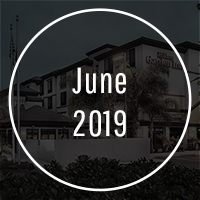Simplifying the hotel industry in 2018
This article was originally published on Hotel News Now.
It’s time for the hotel industry to get back to the basics, with a focus on three primary areas: marketing, operations and finance.
Marketing, operations and finance are three diverse yet comprehensive sectors of the hotel business, and should be primary focus areas for hoteliers this year.
Why?
Marketing has completely transformed the hotel industry. Today, we must thoroughly understand revenue management, distribution channel management, social media marketing, web marketing and myriad changes in guest preferences. Moving to operations, we have added a couple of twists like robotics, energy management and new laws particularly surrounding human resources. By and large, this is where the art of hospitality still shines, but a big addition is wellness of both guests and team members. Most owners view finance as the most important area.
Finance is really a cyclical thing, notwithstanding accounting rules, new software and tight cost controls that have not changed. Hold, sell, build, buy—where, when and with what capital?
Here’s what to watch for in each of these three areas.
Marketing
Lobbies are the new meeting place. Food-and-beverage revenues are now a critical part, and restaurants have become simple and healthy with a focus on locally-sourced suppliers. Data and analytics lead to winning the loyalty game as data can segment guest profiles to infinite degrees, creating a comprehensive picture of who’s staying at our properties. We can track guest habits, interests and preferences as well as the reason for travel, booking date, date of last stay and much more. The digital impact has been enormous as we must continue to make enhancements on the interface side in multiple languages and improve mobile booking and navigation.
We must invest in comprehensive travel content with links to transportation, attractions and tours and must personalize content. In addition, we must increase promotions and undertake customer relationship management to improve loyalty. CRM really allows personalization and this could be the most effective way to move the needle from online travel agencies to a direct channel like our web sites.
The Chinese market has some preferences, such as electronic pay, language help, different food choices and more. This has been the fastest-growing segment over the past few years with more than 100 million Chinese traveling each year. Another market where we have new opportunities is the group market. Meeting and event planners require a more streamlined process so that everyone—suppliers, planners and guests—benefits.
Operations
Crisis management and cyber security will gain in importance as the addition of active shooter training is added to a hotel’s playbook and cyber-crime continues to increase dramatically. “Run, Hide, Fight” training and a technology expert at each company is now required.
Multiple changes within the tech space have created a paradigm shift, leaving some players behind but adding value for users. Artificial Intelligence is here to stay, and it can enhance a hotel’s reputation, increase revenues and make the customer experience better. Guests are already accustomed to receiving recommendations from digital platforms.
Labor costs, new supply, alternative accommodations, guest preferences and rapidly escalating guest acquisition costs are all changing the landscape of hotel operations. An additional set of changes surrounds the human resource function. Wellness programs are popping up for hotel team members and guests. Let’s make guests happy with healthy food choices and wellness programs, and keep our hotel team happy and healthy as well!
Finance
Construction costs are higher, and values in hotels may have peaked in many markets this deep into the economic recovery and expansion. Revenue per available room may begin to flatten, which will put pressure on net income as labor costs soar. Brands have become rather aggressive with property improvement plans today so if we are going to hold an asset, we need to be prepared to pay to keep our brand. Further, guests expect an updated product, so even independent hotels must renovate regularly. The decision to hold, sell, buy or refinance is reaching a critical decision point.
Technology changes are likely to occur with blockchain. Transactions made in the blockchain are fast, and funds can be exchanged within minutes—much faster than bank transfers. This speed is one of the big draws of using blockchain technology, but the largest is its simplification of the transaction process. Blockchain eliminates the need for middlemen like traditional banks. Transactions in the blockchain can be made directly, peer to peer. This can be a game changer with OTAs and is worthy of watching carefully.
The bottom line is that we cannot run these hotels on our own. We need marketers, operators and those with financial acumen to guide us. Nobody can do it all. It’s simple but not easy.







